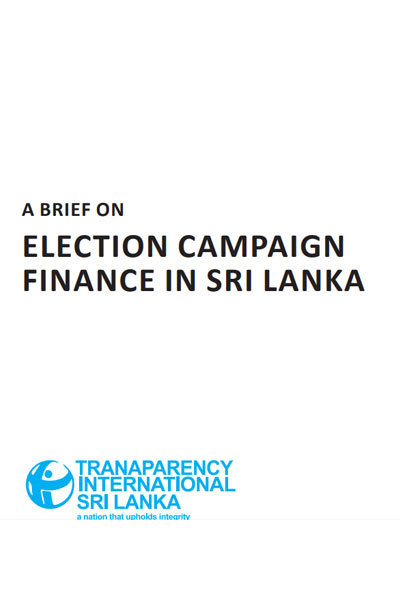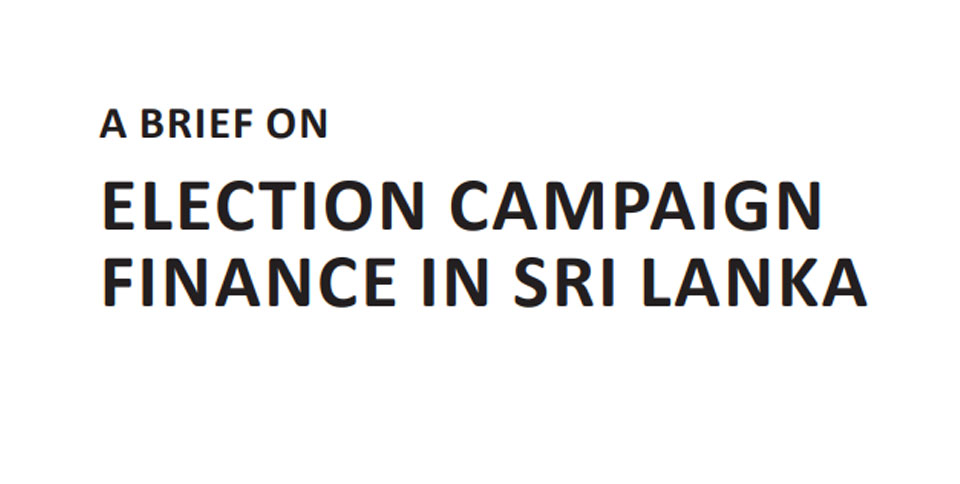
A vibrant and participatory democracy presupposes the need for money in its political arena. In order to reach electorates and to make their message, policies and goals known effectively, political parties and candidates need access to sufficient funding.
The role of money in politics is never unproblematic. The unregulated use of finances could have an adverse impact on the carrying out of free and fair elections. The use of the election campaign process to launder illegal funds, the purchase of the allegiance of certain candidates or parties, the abuse of state resources, media patronage, favouritism by political party leaders towards wealthier candidates and the resultant loss of focus on policy priorities and the creation of an unequal playing field are some of the problems caused. New entrants to politics, the poor and the underrepresented are the invariable victims of such problems. The prejudice caused to certain segments of society due to these influences that should play no part in a democratic electoral process must therefore be prevented, ensuring more equitable representation in governing bodies.
The franchise is a core means through which the citizen exercises their sovereignty. A good electoral system must therefore include effective regulation of election campaign finance – as well as the larger scheme of political finance.
Transparency and regulation increase the integrity of the electoral process, informs voter choice by allowing them access to relevant information regarding a particular party or candidate and creates a level playing field for candidates and parties of different social milieu.
Download:

